Craft Neurodiversity Affirming IEPs That Yield Meaningful Goals, Supports, And Accommodations For Your Autistic Students

This fun & comprehensive self study course will teach you a simple approach you can use to easily craft neurodiversity-affirming IEPs that embrace autistic students for who they are, while giving them the supports they need to build self-determination, confidence and independence.
After this continuing education course, you’ll also be able to easily explain to parents why using a neurodiversity-affirming approach will make a positive impact on their child's self-identity, fulfillment, and long-term happiness. AND you'll have an easy method to select goals you can effortlessly track and accommodations that are specific to autistic characteristics.

Wouldn’t it be nice if IEPs were more meaningful for your students?

As SLPs, we want with all our hearts for each of our students to reach their fullest potential.
The goals we write, the supports we provide, and the accommodations we advocate for — we do it all hoping that we can help our students.
But if you’ve been an SLP for long, you’ve probably left IEP meetings feeling defeated because all you talked about were your student’s deficits to the IEP team…
You’ve seen your autistic kids get stuck with the same looking IEP, year after year, with little to no progress.
And when you see your students not making progress… it can make you feel like you don’t know what you’re doing…
Let me tell you a little story about me (Speech Dude)…
I wasn’t always one of the “ND affirming” cool kids.
Not long ago, you could have found me attending just about any live seminar or conference I could to consume effective strategies for working with autistic students.
And at the time, I felt like I had a handle on what was best for them. Here’s what we did…

We worked on social skills concepts to help students try and fit into what's considered "normal"…
We focused on:
- ‘expected behaviors’ in a social situation to mirror typical peers (such as making eye contact)…
- providing compliments to others…
- maintaining an ‘appropriate’ tone of voice...
- initiating conversations with peers during unstructured time...
- responding to teasing appropriately...
- and so much more…

But over 20+ years as an SLP, I never saw my autistic students feeling comfortable with these so called "social skills" being taught...
Which got me thinking…
If targeting social skills devalues autistic communication and social styles, what was the point?
It was almost as if therapy was more harmful than it was beneficial!
There had to be a better way!
I desperately wanted to change whatever needed to be changed so I could have a positive impact on my autistic students’ lives…
I was tired of having my autistic students dread coming into speech because it was exhausting for both of us…
I was sick of seeing parents look disheartened because their children were still having a difficult time interacting with others and making friends…
…and I knew the IEPs I was writing were driving everything.
So I started looking for an answer.
I listened to autistic content creators on social media, read books about neurodiversity, the neurodiversity paradigm (and movement), and collaborated with autistic professionals to figure out what I needed to do — and through the process…
I discovered that the entire IEP document is shaped around something called the “Medical Model”…
This “Medical Model of Disability” influenced the first DSM manual dating all the way back to 1952 — and while some things are better served old (okay… maybe just wine)...
…this model was in need of an update!
It focuses almost completely on deficits and leads to "treatment" and trying to “fix” the child based on a bunch of neurotypical norms.
But as I continued researching, I discovered that this was not the only model to base our IEPs on( *matter of fact, it's the complete opposite of what we should be focusing on)…

There is a BETTER model you can base your IEP on!
It’s called the Social Model of Disability.
Unlike the medical model, which tries to stuff autistic kids into the same box with their neurotypical peers and promotes masking that leads to high levels of anxiety, stress and mental health conditions...
…the Social Model of Disability accepts that all brains are different, and works to provide for the unique needs, supports, and accommodations of autistic students.
Why is this good?
Because according to IDEA law…
These kids are supposed to be getting services that “meet their unique needs and prepare them for further education, employment, and independent living..”
This includes things like self-determination, self-advocacy, positive self-identity, independence, and the ability to achieve personal goals.

So I created a process that any SLP can use to QUICKLY and EASILY craft ND Affirming IEPs…
(‘cause a lot of us are short on time…)

This is the same process I’ve been using to craft neurodiversity-affirming IEPs for my students each year.
It allows you to make a shift so the verbiage in the IEP (including the present levels and accommodations that come out the other side) will actually make a real difference for your students….
And when you use this system, all your IEPs will be legally defensible and in compliance with IDEA law!
I also created 25+ educational handouts that make it easy to teach different topics to parents & advocates...
With over 16 years of experience in special education law, I've done the legwork and created everything you need to educate parents about an ND Affirming approach.
You'll have all the language and resources you need to get these concepts across during IEPs so you can reign over your portion with confidence…
How can you get this system?

Introducing: How To Make Your IEPs Neurodiversity Affirming - A Course For SLPs
Comes with over 25 educational handouts, a digital tracking system AND ASHA CEUs!

This is the fastest and easiest way to support your autistic kids with Neurodiversity-Affirming IEPs that fuel more meaningful goals, supports & accommodations for your students!
You’ll be able to walk confidently into your meeting because the critical strategies you need to explain your report to parents and advocates are inside.
Can you imagine crafting an IEP that builds on student strengths, promotes positive self identity, increases confidence, and makes your students feel accepted for who they truly are?
Imagine walking into your next IEP meeting with an IEP you’re confident in and thrilled to present because you know EXACTLY what to say and how to answer every question?
That’s what this course is all about!
Learning Objectives:
✔ Participants will be able to describe three effective strategies and practices to foster autonomy, decision-making, and self-advocacy skills for their autistic students within the Individualized Education Program (IEP) framework.
✔ Participants will be able to generate at least three strengths-based goals and Individualized Education Program (IEP) accommodations that respect and value the neurodiversity of autistic learners to foster an inclusive and empowering educational environment.
✔ Participants will be able to describe the difference between the medical model of disability and the social model of disability, highlighting their distinct conceptual frameworks and implications for autistic students.
✔ Participants will be able to summarize effective strategies for fostering collaboration between educators, parents, and other professionals to create comprehensive neurodiversity affirming Individualized Education Programs (IEPs) for neurodivergent students.
YES, I'M READY TO HONOR MY GREATNESS WITHIN ME
6 Easy Modules Of ND Affirming Fun With Speech Dude!
(Here’s what’s inside the course)
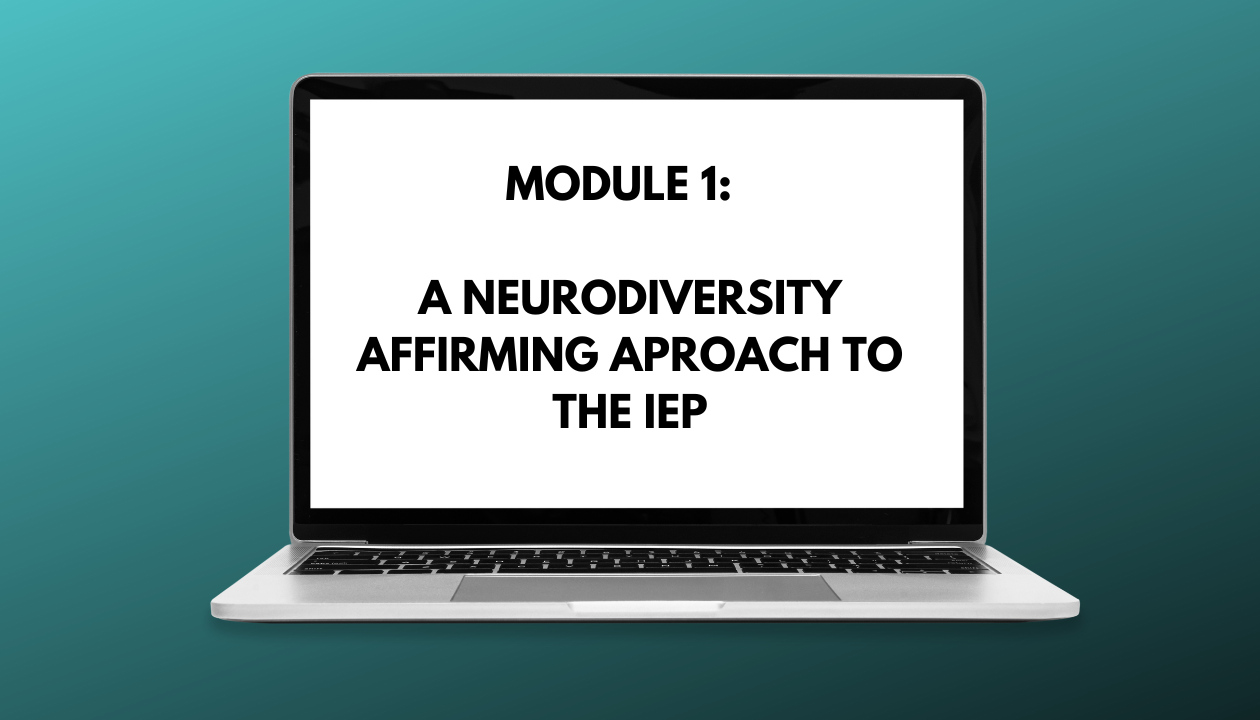
Module 1: A Neurodiversity-Affirming Approach to the IEP
Get a deeper understanding of why everything you thought you knew about autism is wrong. Plus, you’ll dive deeper into the current IEP model and get access to the must-know vocabulary to describe these concepts.
✔ Why everything we know about autism is wrong
✔ How the conventional IEP model is set up and how to make the change
✔ Critical terminology to know (*must-know vocabulary)
✔ Educational Handout provided
Total time: 71 minutes
Module 2: What to Consider When Looking at Social Skills
Let’s not throw out the baby with the bathwater! Some social skills are still useful (but very few). In this module, you’ll find out why we should no longer be targeting social skills and how to address parent discussions at the IEP table which will minimize your IEP stress and replace it with IEP confidence!
✔ Social skills - What to teach & what to avoid
✔ Roadmap for parent & advocate discussions at the IEP table
✔ Educational handouts backed with research to support these changes
Total time: 57 minutes
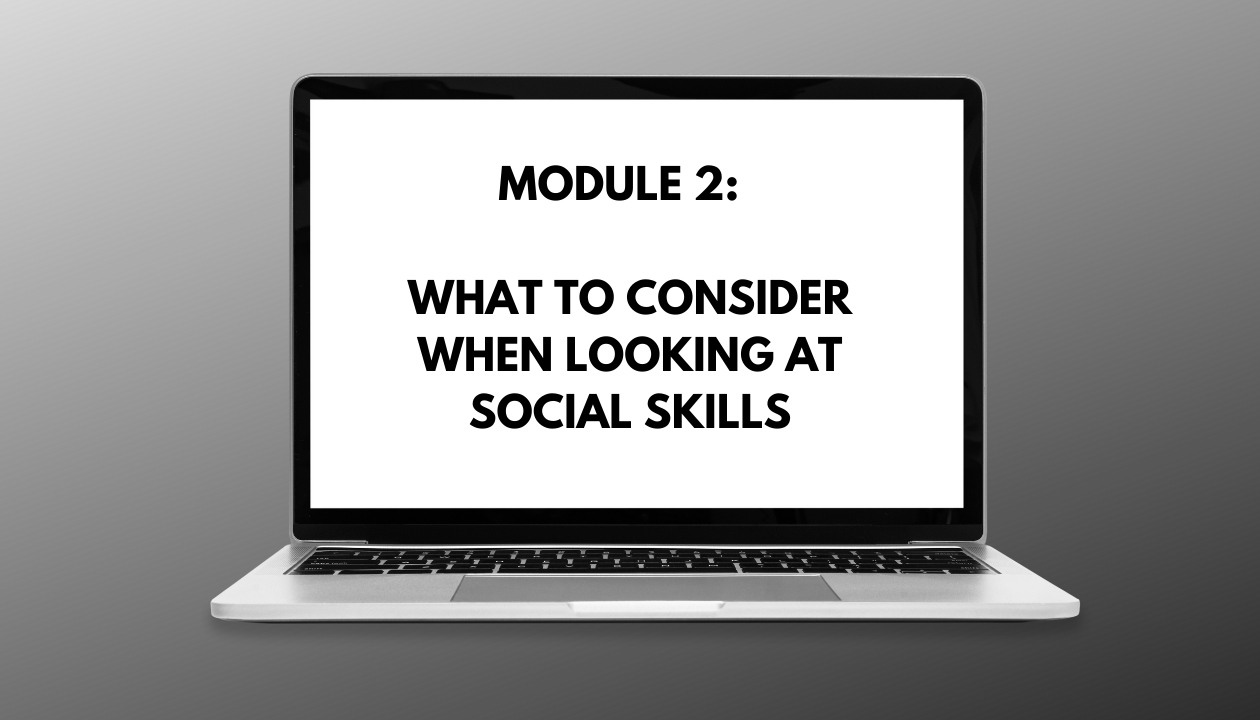
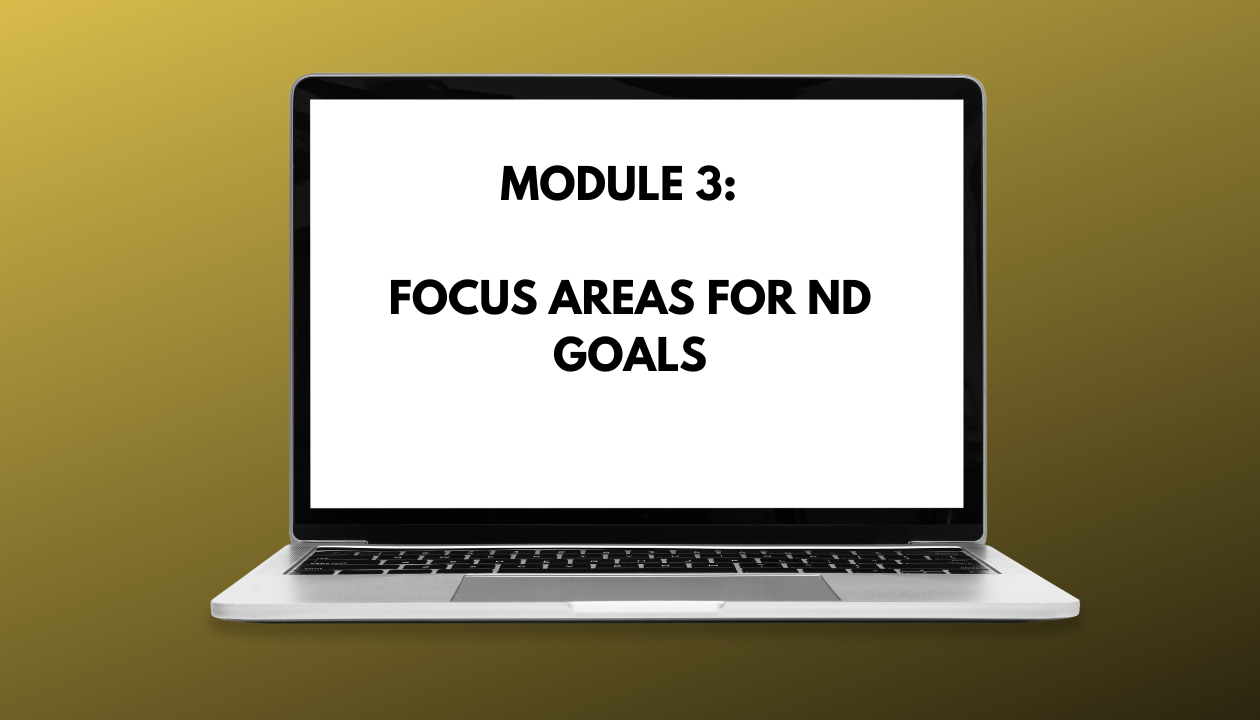
Module 3: Focus Areas for ND Goals
It’s time to get granular on goals! This is your complete guide to writing easily trackable goals that are neurodiversity-affirming based on the data you gather. And guess what? It comes with a goal bank!
✔ Discover exactly what areas to target with goals within the school setting that align with IDEA law
✔ How to structure groups (helps your autistic kids make friends)
✔ Implementing therapy that aligns with goals
✔ GOAL BANK INCLUDED!
Total time: 69 minutes

Module 4: Legally Defensible Goals with Data Tracking System
This is where I’ll give you my system for effortlessly tracking the goals you’re writing. This ensures your report is 100% legally defensible. Plus, I’ll be providing effective strategies for communicating with parents & advocates.
✔ A system for effortlessly tracking your goals
✔ Effective communication strategies in IEPs (with parents/advocates)
✔ How to keep your district legally compliant
✔ Printable data tracking system
Total time: 54 minutes
Module 5: All Things Considered (Accommodations & Supports)
One of the key components of a neurodiversity-affirming IEP is making sure your autistic students have access to the supports they need. The Present Levels page provides us with a unique opportunity to advocate for these supports. I’ll show you exactly how to decide if a student needs a certain support, and why.
✔ Key areas to consider for Supports Page of the IEP (executive functioning, communication, sensory, emotional, language, etc.)
✔ Vital concepts about autistic characteristics you've never heard of
✔ Modifying the Present Levels of Performance Page to align with accommodations
Total time: 63 minutes
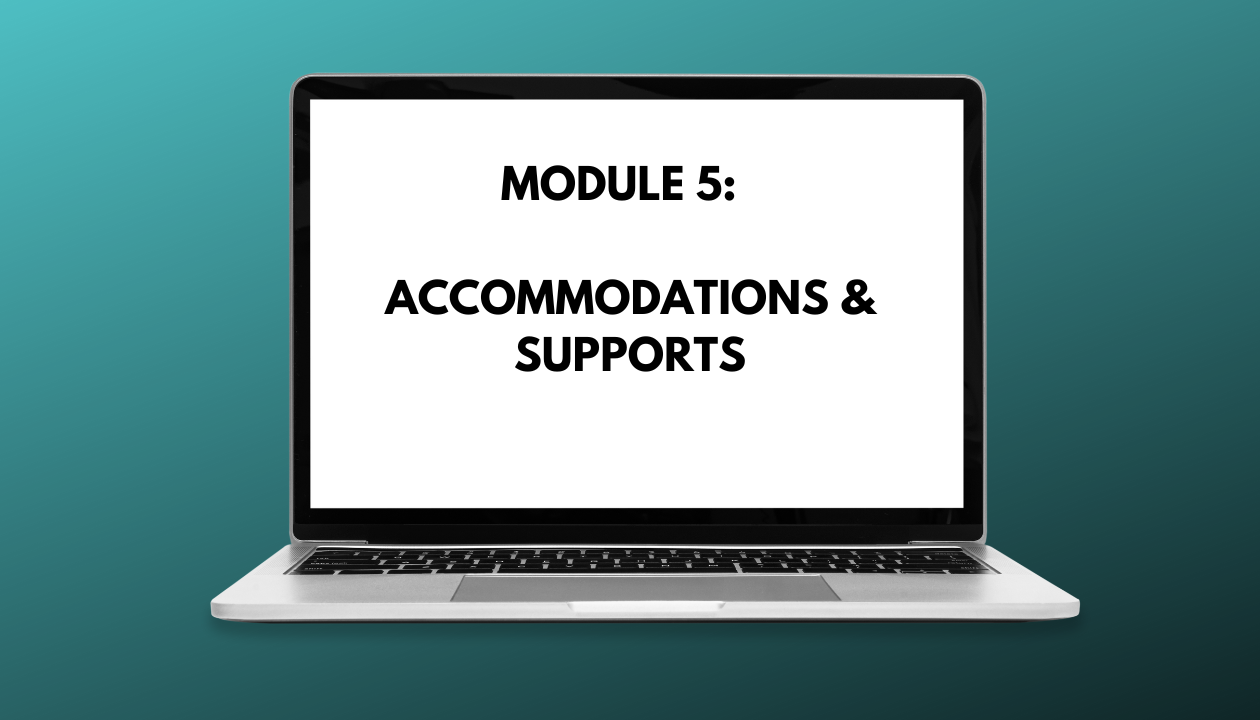
Module 6: Sensory Processing Differences
Understanding sensory processing differences is like unlocking the secret codes to help our neurodivergent students thrive in school. By knowing what makes their senses different, we can create a neurodiversity informed environment where learning can take place.
✔ Sensory Processing Differences made easy!
✔ 3 Types of Sensory Processing
✔ Strategies to help your students thrive at school
✔ Educational handouts backed with research to support these changes
Total time: 54 minutes
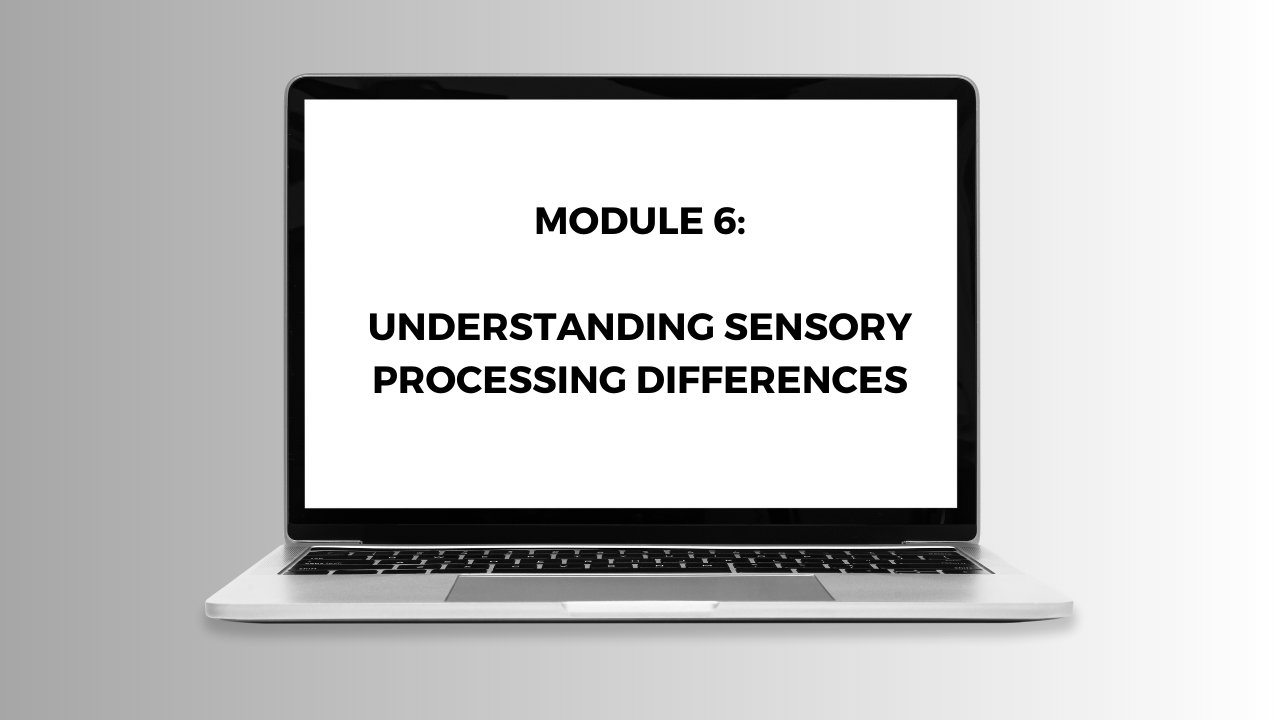

Bonus: Educational Handouts, ND Affirming Goal Bank and Resource Page!
Get every ND Affirming goal you need to lead IEPs with confidence.
✔ Full goal bank of ND Affirming goals
✔ Explanations of what these goals are, how they work, and why they’re important
✔ Easy to use (once you know what to do with them)
✔ Resources page with links to evidence-based research for support in IEP meetings
If you want to walk confidently into your next IEP, knowing that you’re giving your students the best support — this is the easiest way to do it…
Here's what you're getting:
✔ 6 Modules Course Full of ND Affirming Fun w/ Speech Dude (Value $449)
✔ 25+ Educational Handouts for Parents & Advocates (Value $149)
✔ Goal Data Tracking System (Value $189)
✔ ND Affirming Goal Bank & Resources Page (Value $49)
✔ ASHA CEUs
A TOTAL VALUE OF $836
This course will be extremely comprehensive with short videos and entertaining content...
Meet “Speech Dude”
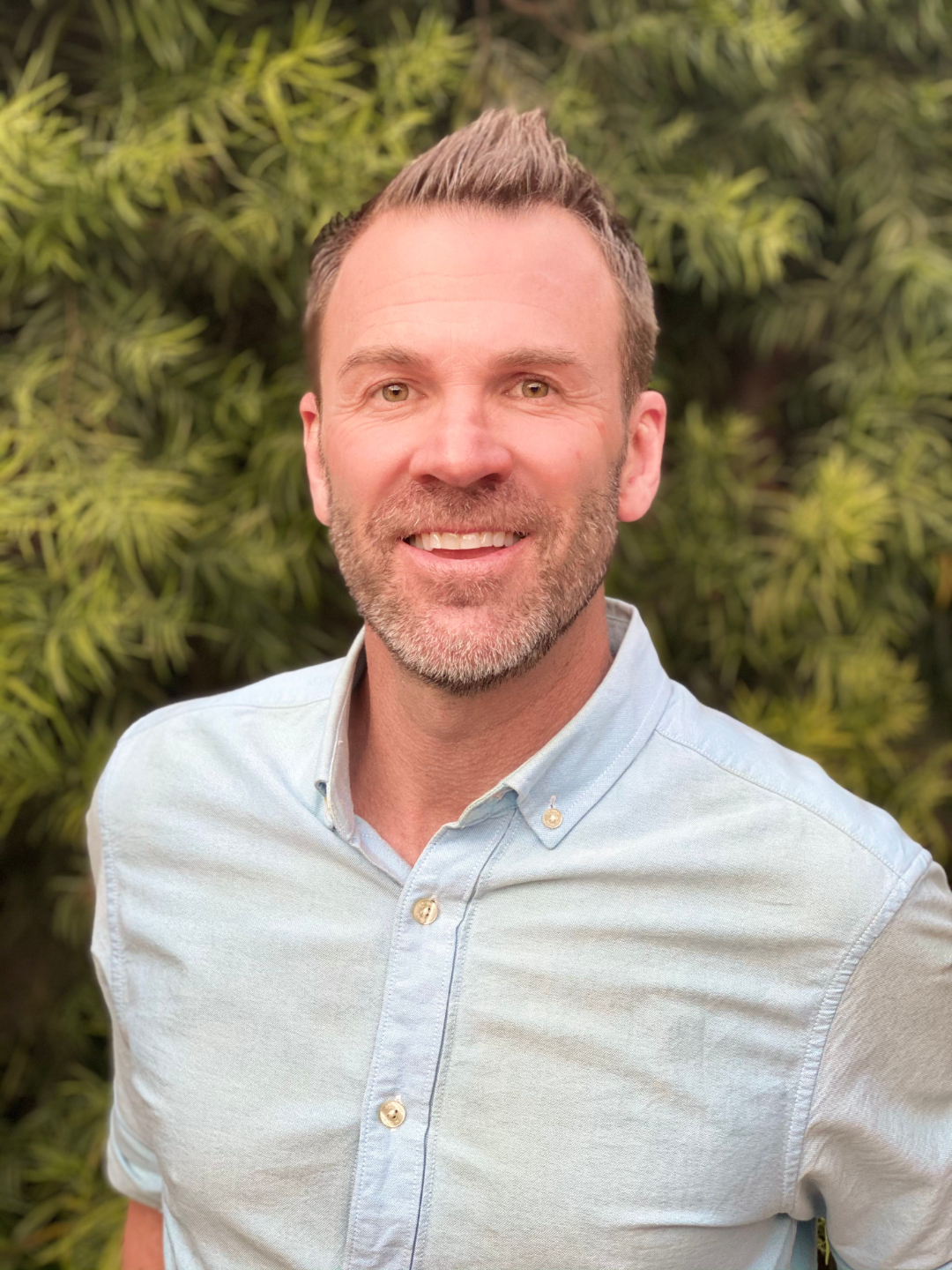
Hi, I’m Chris Wenger.
I’m a former high school special education teacher turned SLP with over 20 years of IEP experience and special education law. Being neurodivergent myself, I know first-hand what it's like to feel invalidated and to not receive the supports needed within the educational system.
If there’s one thing I do know though, it’s that accepting student's to be their true authentic selves is the key to building strong relationships and it's what ultimately leads to the biggest impact on their independence, autonomy and long-term happiness.
We absolutely need to first understand the history and language that has led to a deficit-based model, and how we can reframe the IEP to support our students characteristics, skills and challenges. This webinar will teach you how to “filter” your understanding through a neurodiversity-affirming lens so you can walk more confidently into your next IEP meeting.
I guarantee, you’ll be better able to support your students after this webinar!
~ Chris Wenger (a.k.a., "Speech Dude")
Disclosures for Chris Wenger:
Financial: Presenter (and owner) for Speech Dude and receives compensation for this course. Chris also works for CJUHSD.
Non-financial: Co-chair of the West End SELPA SLP Council

